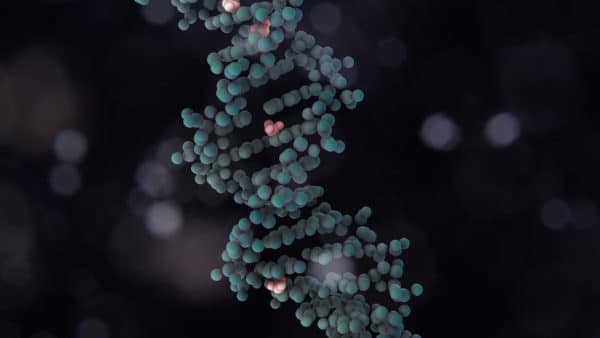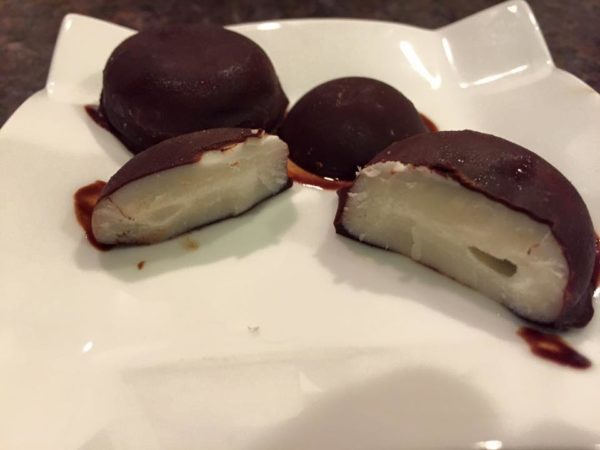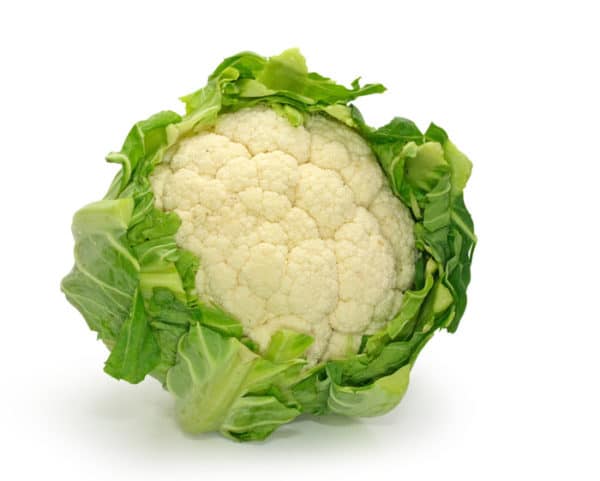
If you’ve followed me for any period of time you know that I believe, and emerging science supports, that inflammation is the root of all disease. Inflammation is the most prevalent cause of pain.
Surprisingly – perhaps – is the fact that most inflammation is really the result of lifestyle choices that we make every day. Things like how well we manage our stress and whether we routinely exercise can create or diminish inflammation. Do we avoid toxins in our environment as much as possible? How fast do we eat? What type of foods are we choosing to eat? All of these “choices” impact your body’s level of inflammation as well as pain.
Unfortunately, the Western medicine approach to pain is to suppress it with drugs. While this may offer short-term relief, we know that it comes with short and longer-term side effects. For the most part it also doesn’t get rid of the underlying inflammation.
In my own, practice I encourage people to try holistic changes to manage their everyday pain and inflammation. Certainly there are exceptions to this. Severe post-surgical pain, for example, along with other acute causes of pain, may need immediate relief. But the lingering and chronic headaches, joint pains, and the like can often be treated very effectively with healthier therapeutic options.
Incorporating anti-inflammatory foods, herbs, and spices into the diet is one of the easiest approaches.
The issue with over-the-counter and prescription pain relief
Aspirin and Tylenol
Aspirin and Tylenol have been common over-the-counter pain killers. But more and more research is showing there are many negative side effects. Regular aspirin use has been associated with damage to the kidney called analgesic nephropathy. It can also overload the liver with toxins. According to the American College of Gastroenterology, the regular use of aspirin can also lead to ulcers.
 NSAIDs
NSAIDs
There are a series of drugs known as NSAIDs (non-steroidal anti-inflammatory drugs). Common NSAIDs include Motrin, Aleve, and Advil.
But these, too, have been associated with potentially serious side-effects, especially at higher or longer-term dosing, like you see with chronic pain. Some of the side-effects include damage to the digestive system, including your stomach and intestines. Bleeding can occur. NSAIDs can also cause issues with the liver and kidneys, and even increase the risk of heart attack and stroke.
COX-2 Inhibitors
More recently there is a newer class of NSAIDs called COX-2 inhibitors. COX-2 is an enzyme in the body that causes inflammation. The COX-2 stands for Cyclooxygenase 2. This newer category of pain killer/anti-inflammatory includes drugs like Vioxx and Celebrex. These drugs have fewer KNOWN side-effects than the other NSAIDs. I emphasize “known”, as we just don’t really know yet what longer term side effects may be associated with them. These drugs are synthesized in a lab. The active ingredient is harvested and manipulated into a pill.
Interestingly, you can find COX-2 inhibitors in natural foods.
In foods, the active ingredient hasn’t been isolated from other powerful nutrients. The active ingredient is available, in its natural form, with the other beneficial nutrients found in the food, such as antioxidants and bioflavonoids.
Some of these naturally occurring COX-2 inhibitors found in food include:
- Carnosol – found in curcumin, one of the ingredients of turmeric root. Clinical trials have found it to be a strong anti-inflammatory and analgesic compound.
- Resveratrol – a phytochemical found in red wine’s grape skin. Widely used in Chinese herbal medicine. Studies done from Cornell Medical College have found it to have COX-2 inhibitory effects.
- Omega-3 Fatty Acids: These nuts, seeds, and algae and fish oils reduce the production of inflammatory chemicals. Studies have also found these fatty acids reduce the expression of COX-2 in inflamed joints.
- Thunder God Vine: Lab studies have found that it may help treat rheumatoid arthritis patients. It seems to reduce the synthesis of COX-2.
The issue with these natural anti-inflammatory solutions at this time is that they are not as fast acting as available pain medications, so not a good solution for acute pain. They do work on easing chronic inflammation, however.
So what do I suggest for fighting inflammation and pain naturally with food?
Here are some guidelines that I use in my practice. You can also download this anti-inflammatory food chart as well.
Make sure you are getting your omega-3 fatty acids, but in the right balance of omega-3 fats to omega-6 fats
Ideally you want your client to maintain a 1-to-1 balance. If they’re in a 1-to-1 balance, the fatty acids work together to put out inflammation. The ratio can go up to as much as a 3-to-1 balance of omega-6 to omega-3, and you’ll still experience the benefits of decreased inflammation. You get omega-3 fatty acids from flax seeds, walnuts, chia seeds, and hemp seeds. You get omega-6 fatty acids from sesame seeds, sunflower seeds, almonds, and pumpkin seeds.
Incorporate foods rich in antioxidants into your diet
To protect against free radical damage which causes inflammation, eat a variety of foods rich in antioxidants. Include foods that are rich in vitamins C and E, as well as beta-carotene. Dark-colored grapes, blueberries, red berries, nuts such as walnuts, and Brazil nuts, along with dark green veggies like broccoli and spinach, are good to have on your plate.
Eat a significant amount of green foods abundant in minerals
Recovery and repair of tissues requires a variety of minerals, and minerals also serve as antioxidants. The main minerals that people are deficient in are zinc, magnesium, and potassium. These minerals are abundant in our green foods.
Sea vegetables, like kelp, will also help reduce inflammation.
Incorporate anti-inflammatory foods into your diet
Herbs and spices: There are some herbs that actually have a steroidal effect in terms of decreasing inflammation, but without all the bad side effects. One such herb is licorice root. That’s being used a lot more in asthma inhalers, instead of some of the steroids. It’s being used with great success to help with lung inflammation. It is another COX-2 inhibitor, as is slippery elm and cat’s claw. All are particularly good with the GI tract, as well as the mucous membranes in the throat and respiratory tract. They’re very soothing.
Another great anti-inflammatory good for chronic pain is turmeric. I love it raw, although it is sometimes hard to find that way. Put it into water with some lemon and ginger, maybe a little stevia to sweeten it. You can even try adding turmeric in guacamole and nut and seed cheeses.
Nettle is another amazing anti-inflammatory antioxidant, and it also has a very high mineral content. I like to use it for teas, smoothies, and also in soups.
Some other natural anti-inflammatory herbs are celery, eucommia, devil’s claw, acanthopanax, boswellia, and white willow bark.
Berries
All types of berries have anthocyanins in them which have an anti-inflammatory effect. This includes red and purple fruits, such as blackberries, cherries, strawberries, raspberries, and blueberries.
Vitamin-rich foods help in reducing body inflammation
Foods that have a high vitamin profile may help control inflammatory processes in the body. The main vitamins for inflammation are vitamins B and C.
A hardworking antioxidant, vitamin C offers two added bonuses: It helps the body deal with stress, plus it also boosts the activity of another outstanding anti-inflammatory, vitamin E. Vitamin C can be found in tomatoes, citrus fruit, and broccoli.
Several of the B vitamins target inflammation, in particular the pro-inflammatory cytokines. This includes vitamins B6, B12, and folate. B vitamins have also been found to convert inflammatory homocysteine to the essential amino acid, cysteine. A diet rich in broccoli, asparagus, romaine lettuce, sweet red peppers, and parsley will be full of B vitamins.
Check your food sources, cleaning products, and personal care products for chemicals
Chemicals are coming into your body all the time. You start out with your immune system asking, “Friend or foe?” Your body is programmed to recognize food, bacteria, and organisms. But you don’t have the built-in mechanisms to handle all these chemicals you’re bombarded with, so they get stored. Thisall causes chronic inflammation and an alteration of your immune system. Read the ingredients!
 Avoid foods with gluten and dairy, as well as any other allergy triggers
Avoid foods with gluten and dairy, as well as any other allergy triggers
An allergy is an over-reaction of the immune system, the body’s natural defense system. In short, the body responds as though it’s under attack, releasing antibodies and triggering inflammation, even though the allergen that is stimulus of the attack is normally harmless.
Gluten is actually an umbrella term for a family of proteins found within the seeds or grains of wheat, rye, barley, spelt, kamut, and triticale. If you are sensitive to gluten, the immune system responds to it as if it was an intruder in the body, not a food. This reaction will eventually wear down the immune system and disrupt your metabolism, setting the stage for systemic inflammation.
Dairy has a protein called casein. Casein triggers an autoimmune process where the body produces auto-antibodies. The auto-antibodies attack the body’s own tissues. The whole process results in a weakening of the body’s natural-defense system. Other allergens you might want to avoid are eggs, sugar, peanuts, and soy.
Test your pH every day and create a diet that alkalizes your body
There is a relationship between chronic muscle and joint pain, inflammation, and saliva pH. These conditions typically develop because of improperly managed inflammation and an acid/alkaline imbalance. Excess acid-forming foods, drink, and a lifestyle of stress put an enormous strain on your digestive system, liver, kidneys, and areas of inflammation. The body’s attempt to neutralize these acids creates more free radicals, which further damages tissues. By incorporating a saliva pH test every day, you can see what you need to do to create that balance. You can download a great cheat sheet on alkaline and acid foods here.
Final words on using natural foods with your clients to address their pain and inflammation
There is a lot of science behind these types of natural inflammation fighters and chronic pain reducers. In fact, there is so that I developed a program around it called, “Eat Your Way Out of Pain and Inflammation”. Check out the program to do more of a “deep dive” into the physiology of what is actually occurring in your body when you experience an inflammatory and painful response.
You can get some great free anti-inflammatory food recipes and food charts here so you can try it out before working with the whole “Eat Your Way Out of Pain” program. Mix it up and try adding different anti-inflammatory spices and herbs.
Share this:

Are you feeling stuck?
Do you feel as if something is missing from your practice that's keeping you from delivering breakthrough outcomes for your clients?.
Recent Posts
Our Programs
Nutritional Endocrinology Practitioner Training (NEPT)
The Mastery and Certification tier is our flagship program and provides everything you need to feel confident as a practitioner who knows how to get results that lead to healthy and happy clients.
Functional Assessment Mastery
Explore the relationships between the most important hormones and their relationship with nutrition.
Functional Nutrition Mastery
Learn how to support your clients to eat and supplement in a way that reduces and eliminates chronic symptoms.
Medical Disclaimer: The information on this website is not intended to replace a one-on-one relationship with a qualified health care professional and is not intended as medical advice. It is intended as a sharing of knowledge and information from the research and experience of Dr. Ritamarie Loscalzo, drritamarie.com, and the experts who have contributed. We encourage you to make your own health care decisions based upon your research and in partnership with a qualified health care professional.
Disclosure: Sometimes (but not always), when I share resources in my programs, newsletter, and on my website, I'm using an affiliate link, which means I do make money if you buy. My credibility is extremely important to me; therefore, I only endorse the products, services, and people I believe in. DrRitamarie.com is independently owned and the opinions expressed here are my own.
Click here to see our Privacy Policy.














